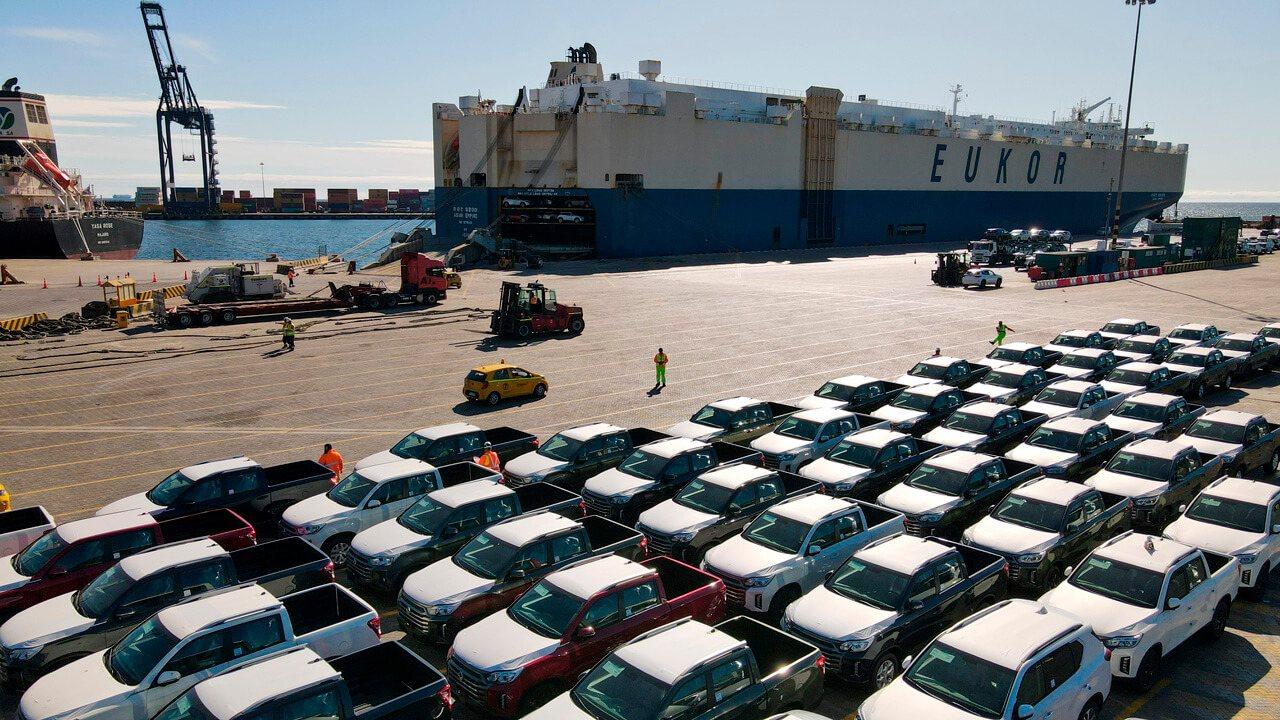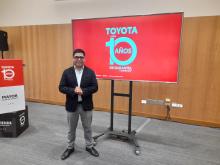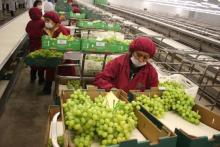
The Association of Automotive Companies of Ecuador (Aeade) says the current situation warrants a review of tariffs in the country, where vehicles imported from the U.S. pay a 40% tariff.
Various productive sectors and the government are seeking to develop strategies to mitigate the effects of the 10% tariff on its imports that the United States has imposed on more than 180 countries since last Saturday. Representatives of these sectors agree that, as this is a reciprocal tariff measure, Ecuador can address it by lowering tariffs on imports from the United States to generate a similar response.
For example, Bruno Leone, president of the National Chamber of Fisheries (CNA), stated last Friday, during a joint statement by the public and private sectors, that "with some understanding of the United States' approach, they are seeking a reciprocity scheme." The leader asserted that the country must put forward a proposal to lower these tariffs, which are a temporary measure.
In this context, the Ecuadorian automotive sector (importing companies) has joined the debate as a segment in which Ecuador could cut tariffs and even catapult the country into negotiations for a free trade agreement with the U.S.
Genaro Baldeón, executive president of the Association of Automotive Companies of Ecuador (Aeade), indicated that the United States is among the few countries that pay the maximum tariff of 40% (one of the highest in the world) on light vehicle imports to Ecuador. He added that only 10% of vehicle imports to Ecuador pay the peak tariff, which is between 35% and 40%.
Within this 10%, according to information from Aeade, in addition to those from the US, there are vehicles imported from Japan, Indonesia, India, and Thailand.
While 38% of vehicles imported into Ecuador enter with 0% tariffs thanks to trade agreements with the European Union (EU) and the Andean Community of Nations (CAN), the remaining 52% enter with reduced tariffs and come from Mercosur (Argentina, Bolivia, Brazil, Paraguay, Uruguay, and Venezuela (a suspended country), Mexico, and China.
According to Baldeón, the reciprocal tariffs imposed by the U.S. undoubtedly represent an important opportunity for Ecuador to review the tariffs paid on imported vehicles, which currently reach up to 40% for countries like the U.S. The head of Aeade indicated that this review could not only ease the tax burden Ecuadorians face when purchasing vehicles, but could also be a step toward strengthening trade relations with the U.S.
However, he noted that any tariff reduction cannot discriminate between countries unless it is implemented within the framework of a trade agreement. Therefore, he indicated that the tariff reduction Ecuador needs must be general across all origins and cannot be directed solely at the U.S. "If Ecuador reduces its tariffs across the board, as required by WTO (World Trade Organization) rules, this could contribute to the U.S. considering Ecuador in a bilateral negotiation process and a desirable trade agreement," Baldeón stated.
He noted that some of Ecuador's competitors that export to the United States already have free trade agreements. In general, and with certain exceptions, countries from Mexico, Central America, Colombia, Peru, and Chile benefit from lower tariffs due to their free trade agreements with the United States. "Ecuador, although it has a relatively low reciprocal tariff of 10%, is subject to the regular tariffs that the United States charges on imports, which in practice means a higher tariff than what our neighbors pay," he analyzed.
The national industry seeks to learn more about importers' proposals.
However, there are comments from the automotive industry (assembly and auto parts companies) regarding this alternative, which, according to David Molina, executive director of the Ecuadorian Chamber of the Automotive Industry (Cinae), could affect the sector.
He indicated that any decision made must also be discussed and worked on with the national industry, ensuring that there are no negative impacts and that the adopted measure respects the principles of international standards. Molina indicated that he had a meeting scheduled with the Minister of Economy and Finance, Luis Alberto Jaramillo, to learn more about this proposal for the afternoon of Monday, April 7, in Quito.
"Depending on the proposal, position, or vision, we will issue a public statement to explain the scope of this measure, if it is ultimately adopted," said the head of Cinae.










